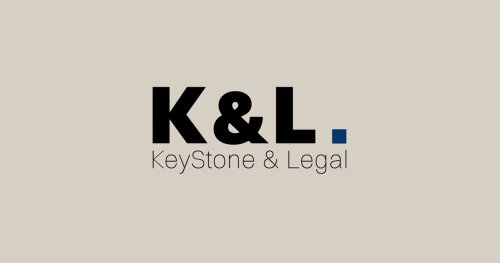Best Health Care Lawyers in South Korea
Share your needs with us, get contacted by law firms.
Free. Takes 2 min.
Or refine your search by selecting a city:
List of the best lawyers in South Korea
About Health Care Law in South Korea
South Korea boasts a robust healthcare system that provides its citizens with high-quality medical services. The government heavily regulates the healthcare industry to ensure patient safety and quality of care. Health care law in South Korea covers a wide range of issues such as patient rights, medical malpractice, insurance coverage, and more.
Why You May Need a Lawyer
There are several situations where you may require legal assistance in the field of health care in South Korea. Some common reasons include disputes with healthcare providers, insurance coverage issues, medical malpractice claims, and navigating complex healthcare regulations.
Local Laws Overview
South Korea has specific laws that govern the healthcare industry and protect patient rights. These laws include the Medical Service Act, Patient's Bill of Rights, and the Healthcare System Law. It is important to be familiar with these laws if you are seeking legal advice in the healthcare field.
Frequently Asked Questions
1. What are my rights as a patient in South Korea?
Patients in South Korea have the right to receive medical care that meets certain standards of quality and safety. They also have the right to access their medical records and make decisions about their own healthcare.
2. Can I sue a healthcare provider for medical malpractice in South Korea?
Yes, you can sue a healthcare provider for medical malpractice in South Korea. However, proving medical malpractice can be complicated, and it is advisable to seek legal advice if you believe you have been a victim of medical negligence.
3. What are the requirements for healthcare insurance in South Korea?
All residents in South Korea are required to have healthcare insurance. The National Health Insurance program covers the majority of the population, while private insurance options are also available.
4. How can I file a complaint against a healthcare provider in South Korea?
If you have a complaint against a healthcare provider in South Korea, you can file a complaint with the Korea Medical Dispute Mediation and Arbitration Agency. They will investigate the complaint and help resolve the dispute.
5. Are there regulations on medical treatments and procedures in South Korea?
Yes, South Korea has strict regulations on medical treatments and procedures to ensure patient safety. All medical treatments and procedures must adhere to these regulations to protect patients from harm.
6. What are my options if I cannot afford healthcare in South Korea?
If you cannot afford healthcare in South Korea, you may qualify for financial assistance through the government's Medical Aid program. This program provides healthcare coverage to low-income individuals and families.
7. How can I find a reputable healthcare provider in South Korea?
You can research healthcare providers in South Korea by checking online reviews, asking for recommendations from friends and family, and verifying the provider's credentials with the Korea Medical Association.
8. Are alternative medicine practices regulated in South Korea?
Yes, alternative medicine practices are regulated in South Korea. Providers of alternative medicine must adhere to certain standards and regulations to ensure patient safety and quality of care.
9. What are the penalties for violating healthcare laws in South Korea?
Violating healthcare laws in South Korea can result in fines, license suspension, or criminal charges, depending on the severity of the violation. It is important to comply with healthcare laws to avoid legal consequences.
10. How can a lawyer help me with healthcare law issues in South Korea?
A lawyer who specializes in healthcare law can provide legal guidance, represent you in legal proceedings, negotiate settlements, and ensure your rights are protected in healthcare-related matters.
Additional Resources
If you need legal advice in the field of health care in South Korea, you can contact the Korea Medical Association, the Ministry of Health and Welfare, or seek assistance from a qualified healthcare law attorney.
Next Steps
If you require legal assistance in health care in South Korea, the first step is to consult with a knowledgeable healthcare law attorney who can assess your situation and provide guidance on the best course of action. They can help you navigate the complex legal landscape of health care in South Korea and ensure your rights are protected.
Lawzana helps you find the best lawyers and law firms in South Korea through a curated and pre-screened list of qualified legal professionals. Our platform offers rankings and detailed profiles of attorneys and law firms, allowing you to compare based on practice areas, including Health Care, experience, and client feedback.
Each profile includes a description of the firm's areas of practice, client reviews, team members and partners, year of establishment, spoken languages, office locations, contact information, social media presence, and any published articles or resources. Most firms on our platform speak English and are experienced in both local and international legal matters.
Get a quote from top-rated law firms in South Korea — quickly, securely, and without unnecessary hassle.
Disclaimer:
The information provided on this page is for general informational purposes only and does not constitute legal advice. While we strive to ensure the accuracy and relevance of the content, legal information may change over time, and interpretations of the law can vary. You should always consult with a qualified legal professional for advice specific to your situation.
We disclaim all liability for actions taken or not taken based on the content of this page. If you believe any information is incorrect or outdated, please contact us, and we will review and update it where appropriate.
Browse health care law firms by city in South Korea
Refine your search by selecting a city.














